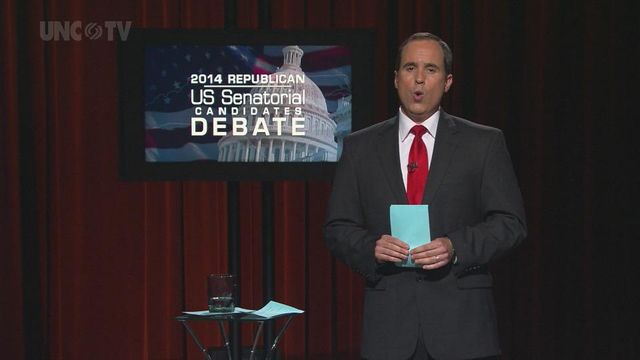Republican Senate candidates say they would not back net neutrality
The four leading GOP candidates said they would not back legislation to require Internet service providers to give equal access to all types of content, a key issue for many tech companies.
Posted — UpdatedSome consumer advocates say this would drive up user costs and give an advantage to established companies with deep pockets over start-up companies with innovative ideas.
During a debate broadcast by UNC-TV Monday night, Dr. Greg Brannon of Cary, Wilkesboro nurse Heather Grant, Rev. Mark Harris of Charlotte and state House Speaker Thom Tillis all said they oppose allowing the federal government to set rules for how much priority companies like Time Warner Cable needed to give certain kinds of Internet traffic.
Brannon said the Constitution doesn't give the federal government the power to regulate such traffic.
"The worst thing in the world we could do is for the federal government to put in barriers to make things fair," Brannon said, adding that, when the federal government tries to enforce fairness, it is akin to socialism.
Grant, too, said there "should be no government involvement," while Harris said, "I would oppose the federal government getting involved."
Tillis said that competition should be allowed to govern Internet speed. He pointed out that, in many places in North Carolina, consumers have a choice of Internet service providers.
Left unsaid: Those areas tend to be urban areas such as Raleigh, and there are still parts of North Carolina without access to high-speed Internet.
"The last thing we need is the government to tell cable providers and Internet providers how fast or slow the content needs to be," Tillis said.
It is unclear what Hagan's position might be on the current FCC net neutrality proposal, but she is on the record as generally supporting the concept.
Related Topics
• Credits
Copyright 2024 by Capitol Broadcasting Company. All rights reserved. This material may not be published, broadcast, rewritten or redistributed.





